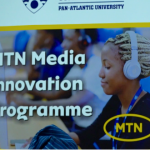Artificial intelligence, machine learning, robotics, nanotechnology, 3D printing, genetics, and biotechnology will cause widespread disruption to labor markets over the next ten years. Since most degrees translate to jobs after graduation, what you choose to study at the university will also be affected by these advancements in technology.
Today, we bring you 10 most useless university degrees in the next 10 years. Hopefully, this will help someone make smarter career decisions.
If you are new here, welcome. This post is brought to you by After School Africa and is available on video (YouTube). Consider subscribing to AfterSchoolAfrica on YouTube to continue exploring opportunities and watching videos like the one below:
RECOMMENDED VIDEO: Top 10 Courses to Study in the USA In 2020
Let’s begin…
Table of Contents
1. Banking Degree
AI and other technological advancements will cause lots of jobs in the banking industry to become redundant. Banks will need fewer and fewer branches due to advancements in financial technology. As a result, more people in the banking industry will lose their jobs. Why study a degree in a field that is rapidly shrinking? This is not to say that banks will be completely run by robots. No. What we are trying to say is that a lot of banking jobs will no longer be needed. Hence, make your career decision wisely.
2. Accounting degree
According to a Forbes report on the future of accounting, it is expected that accounting tasks such as tax, payroll, audits, and banking would be completely automated using artificial intelligence. Accounting software will easily and better handle tasks like invoice payments, bank reconciliations, risk assessments, and time-consuming audit processes.
While there are arguments that these advancements will help and not hinder accounting, there are still real threats to traditional accounting job roles. Some sources predict that accountant roles will move towards consulting and advising. If that is the case, then fewer traditional accounting jobs will be available.
Read Also: 30 Free Accounting Online Courses to Boost Your Accounting Skills
3. Health Care Degrees
There are lots of AI tools and programs that will severely impact the medical field. Some of these areas are medical diagnostics, radiology, and medical imaging (among others). With AI, it will become easier to diagnose complex cases and rare diseases, and process lab results, medical histories, diagnostic images, and patient characteristics.
Again, while the aim of AI in healthcare could be to provide professionals with better decision-making tools, the jobs that largely involve repetitive tasks are likely to be at risk.
4. Marketing Degrees
Traditional marketing is already disrupted with the presence of digital media and marketing technologies. Future advances in information technology will negatively affect marketing jobs. Companies now consider knowledge of digital marketing and analytic tools and strategies over academic qualification in marketing. If you decide to go to school to study digital marketing for four years, your knowledge will be outdated by the time you graduate.
5. Law Degree
Ever heard of the whole first robot lawyer called DonotPay? It was developed in the UK in 2016 and was designed to provide free advice for people looking to contest their parking fines. It mines documents and offers solutions based on a series of simple questions that it asks. You could become a plaintiff on the strength of the documents that it draws up from your answers. The best part is that you get the service for free.
Imagine how many more apps like this would be in operation by 2029. Paralegals will lose jobs, and lawyers who have not adjusted their operations run the risk of losing their jobs. The point is, the traditional law degree of yesteryear might soon become redundant if the education system is not disrupted.
RECOMMENDED VIDEO: 25 Things You Didn’t Know About Studying Law!
6. Journalism Degree
Journalism as we know it is at risk, thanks or no thanks to contemporary media on the one hand and technological advancements on the other. With social media and blogging platforms, everyday people are also significantly encroaching on the jobs of journalists. On the other hand, news organizations have started using machine learning algorithms to write their stories. Forbes magazine already uses an AI tool called Bertie to assist in providing reporters with first drafts and templates for news stories. A Chinese state news outlet, Xinhua, created the first female AI news anchor in November 2018. Jia Jia, a humanoid robot journalist, interviewed Kelvin Kelly, the editor of Wired Magazine. This trend is only seeing its early stages. More innovation and ultimately disruption is possible to follow.
7. Studio Arts Degree
Unless the romantic ideal of a struggling, talented artist appeals to you, you might not take a degree in Studio Arts. Why? Because technology has given the world robot artists. These automated artists can create thousands of new, unique images at the touch of a button.
In April 2017, three young French men started an outfit named Obvious. They have been able to produce 11 artworks just by teaching a computer about art history and showing it how to make its work. The first ultra-realistic robot artist named A.Da was launched recently. It is only a matter of time before versions pick up the baton.
8. Fashion Design
While a degree in fashion design isn’t such a bad idea, if you choose to study in today’s world, you will need an innate artistic ability, a strong aptitude for creativity, and a healthy fear of A.I. This is because the fashion world will not be spared by the Fourth Industrial Revolution. The invasion began with advanced forces like Stitch Fix.
With this fashion service, to get stylish apparel, you need to fill out a profile. Your data is analyzed by a machine, which helps stylists choose pieces that fit your tastes, needs, and budget. You don’t even need to come collect at the store; it gets mailed to you. There will be better versions of Stitch Fix. Only the best designers will survive the onslaught.
9. Art History
Art history is a highly niche subject that has already been perceived as being one of those degrees that do not guarantee a well-paying job after graduation. A.I. and related technologies only make an already difficult situation worse.
Two researchers from Rutgers University in New Jersey developed a system that uses new machine learning techniques to train algorithms to recognize the artist and style of fine art accurately while revealing connections between artists and entire painting styles.
Interestingly, 60 percent of the time the artist was identified, and the style of the work was also identified 45 percent of the time. While there is still a lot of room for improvement, soon, art historians will have artificial intelligence to compete with.
Read Also: Top 10 Fully Funded Scholarships in Fashion, Arts and Music
10. Anthropology
Before the advent of AI, the jury was out on the study of anthropology because, despite its allure (you can thank Indiana Jones for that), it never really offered a realistic career path for a majority (at least not without a doctorate). Some folks even say that there is a reason why there are so few archaeologists around; there is no guarantee of a viable career. This is not meant to dim your burning desire. Rather, it is a caveat that you need to heed.
The Takeaway
Think about jobs that existed 10 years ago that are no longer relevant today. Also, think about jobs that didn’t exist 10 years ago that do now. The smart thing to do is to make career decisions with the future in mind.
And that’s it for today. If you have yet to subscribe to our YouTube channel, this is likely a good time to subscribe. Until next time, YOUR SUCCESS MATTERS!









